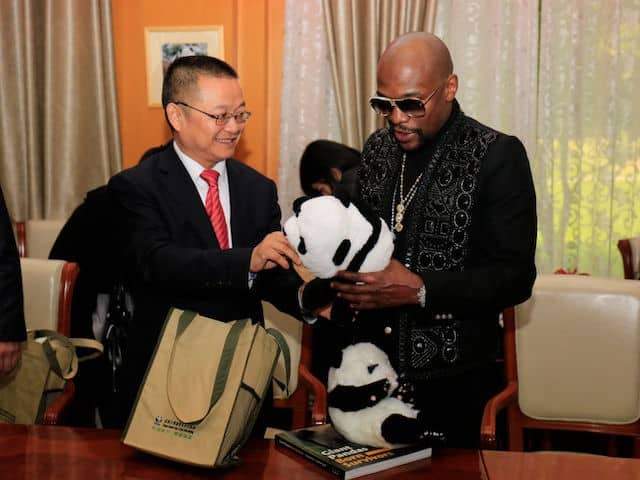Xi Jinping Book: Use ‘Charm of Chinese Culture’ to Promote Marxism

Xi Jinping’s most recent book urges Chinese people to use the “charm of Chinese culture” to promote Marxism, the human rights magazine Bitter Winter reported on Wednesday, promoting an ideology developed in Western Europe with no significant ties to Chinese culture prior to Mao Zedong’s seizure of power.
As the magazine noted, the collected speeches and general thoughts of the Chinese dictator appear to surface in new books every few months, meant to force Communist Party members to consume a steady stream of propaganda for his cult of personality. The core argument of the latest book, “On the Party’s Propaganda and Ideological Work,” is that all Chinese people should view the world as a struggle in which every aspect of human life must be weaponized to promote Marxism, according to Bitter Winter‘s interpretation.
Xi has regularly attempted to use Chinese culture to improve the brutal communist dictatorship’s reputation internationally, from attempting to hijack the once-thriving Chinese rap scene to flooding international zoos with “celebrity pandas” to “cultural” exchanges with foreign universities that result in pressure to censor speech of which the Communist Party disapproves. Western programming aimed at young children — like Thomas the Tank Engine, Peppa Pig, Bubble Guppies, and Sesame Street — have increasingly begun featuring Chinese culture in special episodes.
The Global Times, China’s most aggressive English-language state outlet, has on multiple occasions published articles arguing that Chinese culture is superior to others around the world.
According to the human rights magazine, Xi’s latest book emphasizes the importance of using the “charm of Chinese culture” to promote radical communism around the world, masking the brutality of the ideology with Chinese cultural iconography.
“Xi argues that Chinese should be confident in ‘the excellent traditional Chinese culture nurtured by the Chinese nation’s 5,000 years of civilized history.’ However, this culture should be interpreted taking ‘Marxism as the guide,'” Bitter Winter noted. “Not all is acceptable in Chinese traditions, and Xi’s idea is to filter them and keep only what is compatible with Marxism.”
Elsewhere in the book, Xi insisted that China “is red, and this color cannot be diluted.”
“It is necessary to tell the stories of the party, the revolution, the origin, the stories of heroes and martyrs, strengthen revolutionary tradition education, patriotic education, and youth ideological and moral education, and carry on the red gene to ensure that the red country will never change its color,” Xi wrote.
Xi likens Marxism to a “housekeeping skill,” also arguing it must permeate private relationships.
He goes on to condemn artists and writers who do not exclusively agitate for global communism, asserting, “it is the bounden duty of literary and art workers to serve the people,” meaning the Communist Party.
The virtues of Xi’s interpretation of Chinese culture are key to the message in Xi Jinping’s personal doctrine, “Thought on Socialism with Chinese Characteristics for a New Era,” or “Xi Jinping Thought,” which Xi has forced onto his population as the new cornerstone of Chinese education. Xi’s interpretation of what constitutes Chinese culture is extremely limited, including only the Han ethnic majority the country, excluding the nation’s religious groups outside of Marxism, and requiring the conforming of all cultural products to Xi’s ideology. Xi has implemented a policy of genocide against the minority ethnic groups of the nation’s west, most prominently the Uyghur people, and reportedly recently begun to erase Mongol Emperor Genghis Khan from Chinese history in museums and schools.
Schools have stopped teaching languages besides Mandarin, the language of the Han people. Both religions indigenous to China, like Taoism, and those that arrived early in its history, like Christianity and Buddhism, are facing severe repression. Only Party-supervised religious activity is allowed.
Xi has also heavily censored Chinese music. After a reality television program, The Rap of China, became extremely popular in 2017 and spawned several stars excelling in the American music genre, Xi initiated a campaign to promote Marxism through poorly received government rap songs like “The Reform Group Is Two Years Old” and “The Four Comprehensives Rap.” In January 2018, failing to conquer the rap world with songs praising Marxist bureaucracy, the Chinese government banned rap from television, as well as other cultural markers like tattoos. Some of the alums from The Rap of China have remained able to perform by using their fame to promote communist political causes, like the repression of Hong Kong.
The Party-controlled version of Chinese culture surfaces in state propaganda, often as a source of pride. In 2017, in one example, the Global Times insisted that the Chinese communist empire would not meet the same fate as the USSR because of the superiority of Chinese culture.
“In terms of political culture, Chinese civilization may not enjoy the longest history of all ancient civilizations, but it has survived vicissitudes for thousands of years and still prospers — the epitome of Chinese people’s vitality and creation — as well as a reflection of the political culture in Chinese civilization,” the newspaper alleged. “China developed the advanced political system from the feudal age starting with the establishment of the Qin Dynasty (221-206 BC) and ending with the Qing Dynasty (1644-1911).”
Photo: -/AFP via Getty Images
Link: https://www.breitbart.com/asia/2020/12/02/xi-jinping-book-use-charm-chinese-culture-promote-marxism/











